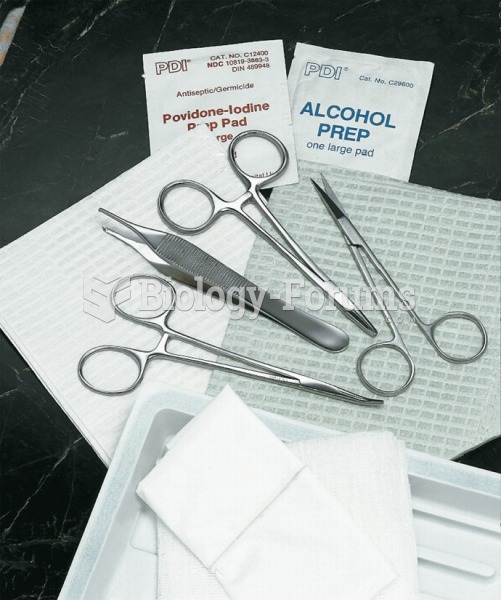This topic contains a solution. Click here to go to the answer
|
|
|
Did you know?
About 80% of major fungal systemic infections are due to Candida albicans. Another form, Candida peritonitis, occurs most often in postoperative patients. A rare disease, Candida meningitis, may follow leukemia, kidney transplant, other immunosuppressed factors, or when suffering from Candida septicemia.
Did you know?
It is difficult to obtain enough calcium without consuming milk or other dairy foods.
Did you know?
On average, the stomach produces 2 L of hydrochloric acid per day.
Did you know?
The familiar sounds of your heart are made by the heart's valves as they open and close.
Did you know?
In most cases, kidneys can recover from almost complete loss of function, such as in acute kidney (renal) failure.







